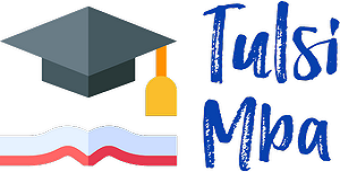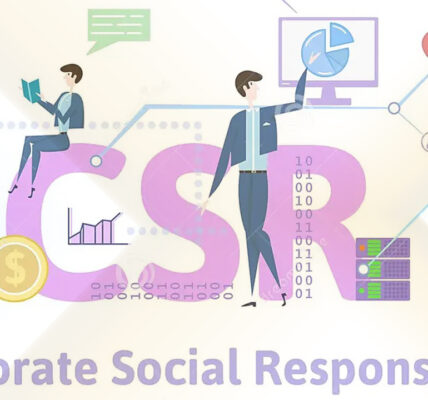Value of the College Degree
Is It Worth the Investment?
Value of the College Degree is an increasingly competitive job market and a world where the cost of higher education continues to rise, the question of whether a college degree is worth the investment has never been more relevant. As prospective students and their families grapple with the decision of whether to pursue higher education, it’s essential to weigh the costs against the potential benefits. This article aims to explore the value of a college degree in today’s society, addressing the economic, career, and personal development aspects.
1. Understanding the Costs of College Education
Before diving into the value of a college degree, let’s first examine the financial aspect. The cost of obtaining a degree varies significantly depending on factors like the type of institution, location, and chosen major. Tuition, fees, room, and board can add up to a substantial sum, often leaving graduates with significant student loan debt.
1.1 Rising Tuition Costs
Over the past few decades, the cost of attending college has risen dramatically, consistently outpacing inflation rates. According to data from the National Center for Education Statistics, the average annual cost of tuition, fees, room, and board for a public four-year institution in the 2020-2021 academic year was approximately $20,770 for in-state students and $38,330 for out-of-state students. Private four-year institutions were even more expensive, with an average cost of $47,770 per year.
1.2 Student Loan Debt
As a result of rising tuition costs, many students graduate with substantial student loan debt. In the United States, student loan debt reached a staggering $1.7 trillion in 2021, making it one of the most significant sources of debt for young adults. This burden can affect graduates’ financial stability and decisions, such as buying a home or starting a family.

2. The Economic Benefits of a College Degree
Despite the high costs associated with obtaining a college degree, research consistently shows that a degree can lead to substantial economic benefits over a person’s lifetime.
2.1 Higher Earning Potential
One of the most significant advantages of a college degree is its potential to boost earning power. According to the U.S. Bureau of Labor Statistics, individuals with a bachelor’s degree earned a median weekly income of $1,248 in 2020, compared to $746 for those with only a high school diploma. Over a lifetime, this income disparity translates into hundreds of thousands of dollars in additional earnings for degree holders.
2.2 Lower Unemployment Rates
College graduates also tend to experience lower unemployment rates compared to those with only a high school education. During economic downturns, individuals with a college degree are generally more resilient in the job market, as they possess skills and qualifications that are in demand across various industries.
2.3 Career Opportunities
A college degree can open doors to a wider range of career opportunities. Many professions, such as medicine, law, engineering, and academia, require advanced degrees for entry. Additionally, degrees often serve as a screening tool for employers, narrowing down the pool of applicants and increasing the chances of landing a job interview.
3. Beyond the Economic Benefits
While the economic benefits of a college degree are significant, the value extends beyond the potential for higher income and lower unemployment rates. College education offers personal and societal advantages that are equally important. More
3.1 Personal Development
College provides a unique opportunity for personal growth and development. It encourages critical thinking, problem-solving, and intellectual curiosity. Students are exposed to diverse perspectives, cultures, and ideas, which can lead to a broader worldview and enhanced interpersonal skills.
3.2 Networking and Social Connections
College campuses are hubs of social interaction and networking. Students have the chance to meet and connect with peers from various backgrounds and disciplines, potentially forming lifelong friendships and professional contacts. These relationships can be invaluable in both personal and career development.
3.3 Expanded Horizons
A college education goes beyond specialized job training. It fosters a love of learning and encourages individuals to explore new interests and passions. Many graduates find that their college experiences shape their hobbies, interests, and even their future career paths in unexpected ways.
4. Navigating the Changing Landscape
It’s important to acknowledge that the value of a college degree may vary depending on individual circumstances and the evolving job market. Several factors are changing the landscape of higher education and its perceived value.
4.1 Alternative Education Paths
In recent years, alternative education paths have gained popularity. Online courses, vocational training programs, and boot camps offer specialized skills and certifications without the time and financial commitment of a traditional four-year degree. These options can be more accessible and cost-effective for certain career goals.
4.2 The Importance of Marketable Skills
Employers are increasingly emphasizing the importance of specific, job-relevant skills over formal degrees. In some industries, a portfolio of work or industry certifications may carry more weight than a diploma. Therefore, students should consider aligning their education with the skills and qualifications that are in demand in their desired field.
4.3 Lifelong Learning
The concept of lifelong learning is gaining traction. As the job market evolves, individuals may need to adapt and acquire new skills throughout their careers. This shift underscores the importance of continuous education and skill development, whether through traditional degree programs or other educational avenues.
5. Making an Informed Decision
Ultimately, the value of a college degree hinges on individual goals, circumstances, and the chosen field of study. Prospective students and their families should consider the following when making an informed decision:
5.1 Career Goals
Consider the specific career goals and whether they require a degree or can be achieved through alternative paths, such as vocational training or apprenticeships.
5.2 Financial Preparedness
Assess your financial situation and determine how much student loan debt you are willing to take on. Consider scholarships, grants, and part-time work opportunities to mitigate costs.
5.3 Degree Choice
Research the demand and earning potential for careers related to your chosen major. Some degrees may offer a better return on investment than others.
5.4 Alternative Education Options
Explore alternative education paths, such as online courses, vocational programs, or industry certifications, to see if they align with your goals and offer cost-effective alternatives.
5.5 Lifelong Learning Plan
Develop a plan for continuous learning and skill development throughout your career, regardless of whether you pursue a traditional degree.
Conclusion: The Ever-Evolving Value of a College Degree
In conclusion, the value of a college degree remains a complex and evolving topic. While the economic benefits are substantial, the rising costs and changing job market dynamics require careful consideration. It’s crucial for individuals to assess their goals, financial situation, and alternatives to make an informed decision about pursuing higher education. A college degree can be a valuable asset, but its worth depends on how well it aligns with individual aspirations and the demands of the modern workforce. Ultimately, education is an investment in one’s future, and like any investment, it should be approached with thoughtfulness and planning. Read More





